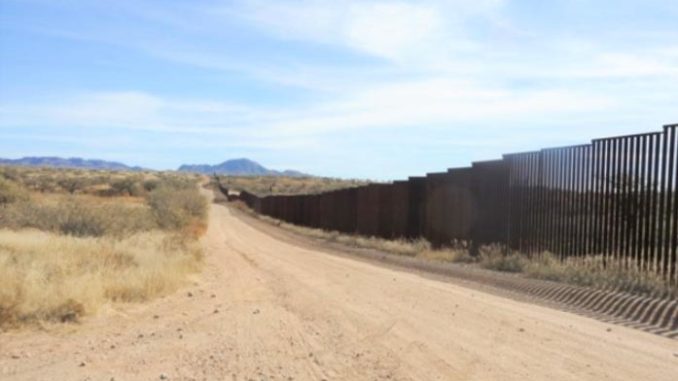
Gov. Ron DeSantis announced Wednesday he intends to send Florida law enforcement officers to Arizona and Texas in response to the governors of those states invoking the Emergency Management Assistance Compact to ask all other governors to “stand strong with us” in addressing the border crisis.
Meanwhile, at least one county attorney questions what arrest powers those out-of-state officers can be given, and believes the Biden Administration is unlikely to reimburse the state or local agencies for any costs incurred in connection to the Compact.
Gov. Doug Ducey and Gov. Greg Abbott issued a plea June 10 to the other governors seeking to bolster the number of non-federal officers available at the border to address the “ongoing surge of illegal border crossings, with the accompanying threats to private property and to the safety of our citizens.”
Few details have been released about what those officers would do, nor what training they will undergo given that each state’s laws are different. But DeSantis is not waiting, and plans to send state police and sheriffs personnel to work 16 days in either Arizona or Texas.
“The Biden Administration ended policies implemented by President Trump that were curbing illegal immigration, securing our border, and keeping Americans safe,” DeSantis said. “Governors Abbott and Ducey recently sent out a call for help to every state in the nation…I’m proud to announce today that the state of Florida is answering the call. Florida has your back.”
Last week’s plea by the governors came on the heels of an announcement by Customs and Border Protection that the agency had more than 180,000 encounters with undocumented immigrants across the nation’s southern border in May. Ducey has already deployed the Arizona National Guard to the border to assist local agencies on a non-law enforcement basis, but more help is needed he says.
While many have lauded Ducey’s decision invoke the Emergency Management Assistance Compact, there has not been much response from local officials who have been burdened on a daily basis by the crisis created when the Biden Administration relaxed immigration enforcement in January.
Cochise County Sheriff Mark Dannels has spoken to anyone who will listen -in Arizona or nationwide- about the “public safety, national security, and humanitarian crisis” along 80 miles of his county. He told American Daily Independent he commends Ducey for “standing up for the rule of law” and says that the governors’ joint letter confirms the situation at the border is non-manageable.
“His recent letter is another example of the governor’s efforts to safeguard our southern border and bring additional resources to our state in partnership with his fellow governors,” Dannels said.
But the sheriff yielded to Cochise County Attorney Brian McIntyre, a fellow Republican, when asked about the practical effect of utilizing out-of-state officers or deputies within his county, as well as the potential costs.
For his part, McIntyre noted the Compact requires the requesting state to bear the expense connected to out-of-state personnel who respond to the declared emergency and act within the scope of the emergency powers. The requesting state also bears the cost of civil liability, including lawsuits, in connection to the Compact.
The other issue is that local law enforcement officials in Arizona are enjoined by a federal court decree from enforcing the state’s 2005 smuggling of human beings statute. McIntyre said there is also case law which “makes clear that immigration enforcement is solely the province of the federal” government.
“I understand the political pressure that the [emergency] declaration is intended to put on the folks in D.C., but I have to advise against using the ‘arrest’ provision suggested in the declaration,” he said. “While the Compact does provide Governors the ability to declare an emergency and does include the ability to include the ‘power of arrest’ if the Governor specifically states, one cannot convey a power that doesn’t exist.”
There is one Arizona statute which McIntyre pointed to as being potentially enforceable depending on the circumstances. That statute, ARS 13-1502, makes it a Class 3 misdemeanor for someone to commit criminal trespass. A defendant convicted under that statute can be sentenced up to 30 days in the county jail and/or a $500 fine.
But according to McIntyre, the criminal trespass statute contains language which requires there to be a reasonable request to leave or a reasonable notice prohibiting entry.
“Permitting out-of-state personnel to make arrests on potentially nuanced state law issues appears to be fraught with potential for abuse and liability, not to mention overtaxing our already strained jail resources,” he said. “While I’m sure the argument can be made that the ‘wall’ is a reasonable notice prohibiting entry, that will absolutely get complicated and there are, no doubt, more than a few attorneys who would love the publicity of trying these cases.”
And what about those costs incurred from utilizing out-of-state officers and deputies? McIntyre said the Compact provides for such costs to be “subject to” federal reimbursement but the language does not mandate it.
“It appears unlikely, at best, that the current administration will authorize that reimbursement,” McIntyre added.
